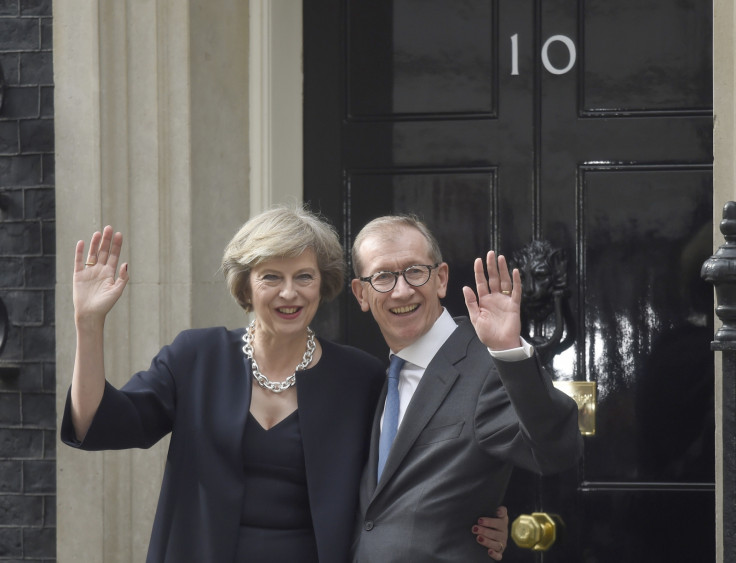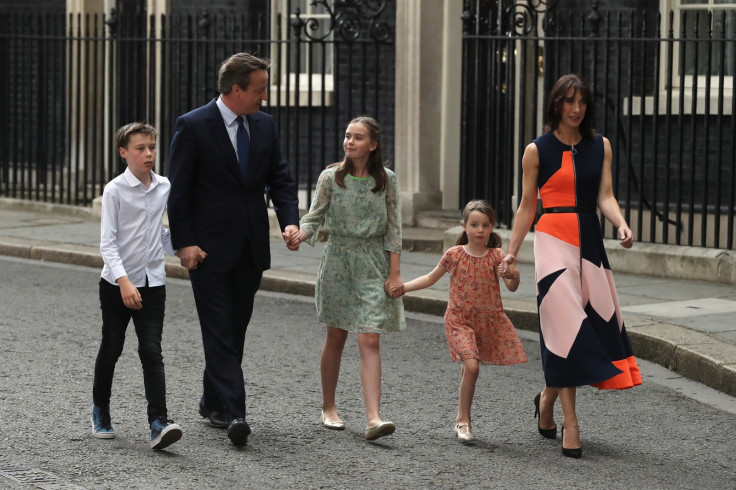Theresa May pledges to continue David Cameron's quest for social justice and save the union
With The Queen's blessing, David Cameron hands over toughest job in Britain to Theresa May
In the end, the transition of power from David Cameron to Theresa May was smooth, efficient and conducted with a minimum of fuss. There was even time for laughter in the House of Commons as David Cameron — the ex-Prime Minister — faced PMQs for the final time. Then, with Samantha and his children watching, having spoken warmly and movingly outside his former home — Number 10 —he went to see the Queen. Theresa May followed him up the Mall and, having been given the Queen's blessing she too spoke outside Number 10 before going inside, husband at her side, to get on with the job. It felt like the day the dust from the Brexit earthquake began to settle.
Cameron's final PMQ was generally warm in tone, with the man himself in good form and most of those assembled thanking him for his six years at the helm. It was suggested he become the next England manager, or presenter of Top Gear; Cameron admitted his diary was suddenly rather light. Even Jeremy Corbyn had a civil word; the only sour tone came from the SNP, who refused even to applaud the departing PM.
Outside Number 10, Cameron reminded the public of his legacy — or some of it. Samantha seemed much happier than she was on the morning of Brexit; the three children were good as gold. Then Cameron offered his resignation to the Queen and, perhaps fortunately for the constitution, she accepted. Soon Theresa May had her own moment with the monarch, who was greeting her first PM before the 59-year-old May was born. Perhaps the nation needed this formality, this ceremony, to help it draw breath after three hectic weeks during which it sometimes felt madness was in the air.

Outside Number 10, the new Prime Minister thanked her predecessor for his enlightened policies on gay marriage and for steering the economy safely through treacherous waters following the credit crunch. She was calm, reassuring, reserving much of her passion for when she vowed to preserve the Union — of England, Scotland, Wales and Northern Ireland. May also spoke with unexpected fervour about social justice — for the poor, the young, for black people, and for the marginalised. Then, Philip at her side, she went through the door of her new home to begin assembling her cabinet of which at least half are rumoured to be women.
Labour's first response to the handover of power came not from under fire leader Jeremy Corbyn but his deputy Tom Watson. Having briefly congratulated Theresa May on becoming the UK's prime minister he went on: "These are challenging times for Britain. The decision to leave the European Union has created enormous economic uncertainty and insecurity. The priority for the new Prime Minister must be to ensure the country is best placed to deal with the challenges ahead.
First picture of new prime minister @theresa_may inside 10 Downing Street (credit @StefanRousseau / PA Wire) pic.twitter.com/0Yzk2n2XBS
— Press Association (@PA) July 13, 2016
"We've today had warm words from our new Prime Minister about the need to stand up for more than a 'privileged few'," continued Watson. "The sentiments are good ones but just like her predecessor the rhetoric is much better than the reality. The truth is Theresa May has been at the heart of the Tory Government for the last six years and is tied to its record. It's a record of failing to stand up to for working people and backing policies that are putting vital public services like the NHS at risk."
There was something reassuring there, too. The government grinds on: the opposition snipe from the wings. That's democracy for you. It could be worse.
Theresa May: “We are living through an important moment in our country’s history" https://t.co/L0js5EDC0G
— BBC Politics (@BBCPolitics) July 13, 2016

© Copyright IBTimes 2025. All rights reserved.






















